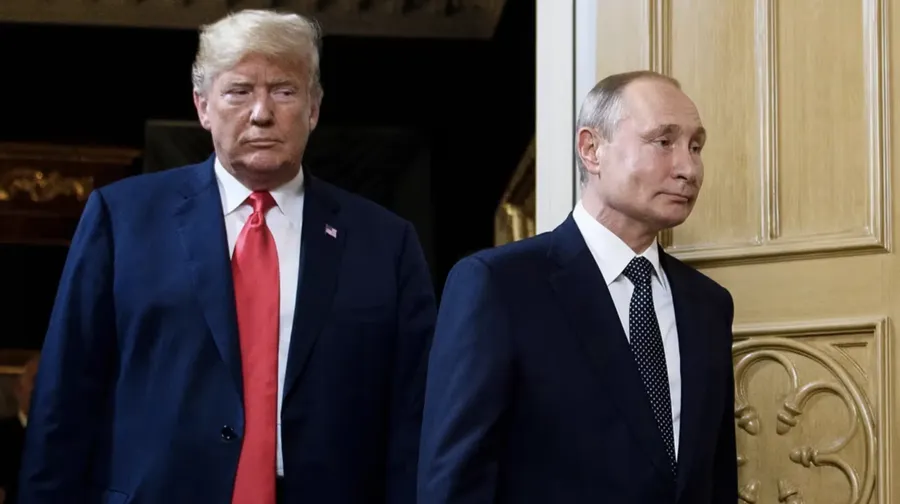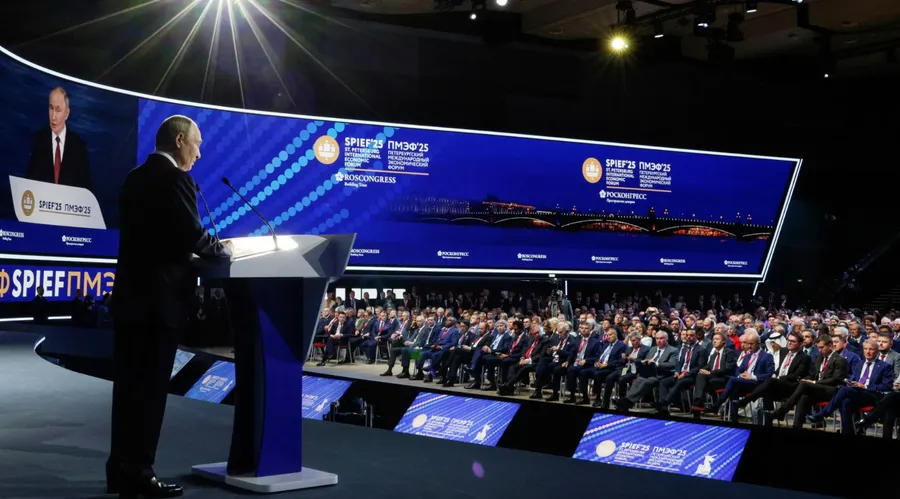They Want It All: Putin’s Open Threats, Trump’s Silence, and Why We Can’t Give Up
by u/FaylenTV
Sunday, June 15th, Russia carried out another wave of drone and missile strikes across Ukraine, continuing its shift toward heavy reliance on Shahed drones, an Iranian-designed loitering munition now being mass-produced inside Russia. An estimated 2,700 of these Shahed drones and 2,500 decoys are produced monthly, allowing Moscow to carry out nightly barrages of up to 300 to 400 drones, assuming their prior estimated surplus remains intact. By all accounts, that seems to be exactly what is happening, as seven of the largest drone attacks of the entire war have occurred in just the past month. It’s worth noting as well: Ukraine does manage to intercept the vast majority of these, but battlefield tactics are shifting. Previously, drones were flown low to avoid air defense munitions. Now, with the United States redirecting those munitions to the Middle East, they’re flown high to evade the machine gun emplacements that were once so effective. And while the recent mineral deal was pitched as a layer of security, suggesting Russia would think twice before attacking U.S. companies in the region, one of Boeing’s buildings was struck in a recent attack. Boeing and the American Chamber of Commerce declined to comment.
On Monday, June 16th, a new round of Russian demands emerged from ongoing talks, with Deputy Foreign Minister Alexander Grushko stating that Ukraine must destroy all Western-supplied weapons as part of any potential ceasefire deal. The statement was part of a broader, so-called “peace memorandum” presented during negotiations in Istanbul on June 2nd, which includes demands for Ukraine to recognize Russian annexation of occupied territories, withdraw its troops entirely, and permanently halt all Western military cooperation. Grushko argued that Western weapons pose a threat not only to Russia but to Europe at large, pushing the same familiar narrative about arms flooding black markets, a claim that’s been repeatedly debunked by international monitors.
On Tuesday, June 17th, reports began to emerge that the Trump administration had quietly disbanded an inter-agency working group developed with the goal of pressuring the Kremlin into peace talks. This group, according to three U.S. officials, included members of the State Department, Pentagon, Treasury, and intelligence community, and had lost both momentum and favor with Trump back in May as he seemed to show less and less interest in taking a harder stance against Putin. There’s so much here that is so painful to write—I’ve tried to highlight points in previous weekly updates where it seemed like Trump may have been moving to support Ukraine or pressure Russia, and to learn that, well, actually anything positive I’ve written in regards to him for the past two months was just false… sucks. The disbanding of the group doesn’t just seem to be affecting guys like me who spend too much time on the internet, though, as it has been noted as deeply concerning for our allies as well, obviously. And while some Republicans are still pushing for increased sanctions against Russia, Trump and those close to him seem to continue signaling that they’re in favor of just walking away.

US President Donald Trump (L) and Russian President Vladimir Putin arrive for a meeting in Helsinki, on July 16, 2018. (BRENDAN SMIALOWSKI/AFP/Getty Images)
On Wednesday, June 18th, the Ukrainian parliament passed a major law allowing citizens to hold dual or multiple citizenships, a shift aimed at reuniting a nearly 25 million-strong Ukrainian diaspora and marking the first steps toward combating a growing demographic crisis after these recent years of full-scale war. Until now, Ukraine did not allow dual citizenship, which meant any foreigner born abroad had to renounce their previous citizenship in order to obtain Ukrainian citizenship. And now, with nearly 5 million Ukrainians living in Europe and Ukraine’s total population sitting at only 32 million, the hope is that those 5 million will still wish to return—even if they take up citizenship in the countries they’re currently residing in while the war rages on. There’s also another angle to this: Ukraine’s foreign or international legions are extremely diverse, and anecdotally, many of those I know serving in the International Legion have grown to love Ukraine but feared either losing their home country’s citizenship or just the brutal and lengthy process it took to gain Ukrainian citizenship. Regardless, it seems Ukraine is wanting to keep with Western liberal tradition in that more opportunities and choices are always better than fewer.
Thursday, June 19th, President Zelenskyy once again called for greater international pressure on Moscow after a deadly missile strike leveled a residential building in Kyiv earlier in the week, killing 28 and injuring over 140 others across the city. Of those killed, 23 died when a missile collapsed a nine-story apartment complex in the Solomianskyi district. Zelenskyy visited the site with other officials Thursday morning, laying flowers and stating plainly that “Russia rejects a ceasefire and chooses killing.” This latest attack was again part of one of the largest bombardments of the war so far, with over 440 drones and 32 missiles launched across Ukraine. As Putin continues his summer offensive and increasingly targets urban residential areas, he still insists no such targets are being hit, stating instead that strikes are only aimed at “military industries.” Meanwhile, in St. Petersburg, Putin praised Trump’s efforts to push for peace but rejected a proposed 30-day ceasefire unless Ukraine halts mobilization and the West cuts off arms. Zelenskyy responded by pointing out that Ukraine had already unconditionally accepted the U.S. proposal, and that Russia has spent the 100 days since escalating its attacks.

Putin speaks at the St. Petersburg Economic Forum (Image credit: AP Photo/Dmitri Lovetsky)
Friday, June 20th, Putin again made very clear what his intentions are in an odd slew of unhinged statements delivered at an economic forum in St. Petersburg. When speaking about the northern Ukrainian city of Sumy, he stated that while there is currently no official goal to seize the city, he “doesn’t exclude it in principle,” following it up with, to me, the most mask-off line yet: “Wherever a Russian soldier steps foot, that’s ours.” So, for every single MAGA and tankie online arguing that this war has anything to do with NATO expansionism, or anything other than Putin’s Nazi-like ideology, do your best to remind them of this. Putin then doubled down, channeling his inner fascist, claiming that Ukrainians and Russians are “one people,” and that all of Ukraine, in his own words, already belongs to Russia. While for every sane person this has been obvious for a long time, to hear it stated plainly and publicly yet again almost makes you feel like you’re losing your mind. And while I’m sure the goalposts will move for MAGA and the far left, perhaps some will just own this for what it is, but either way, this should be reason enough for us to donate or fight however we can. Ukraine must win.
Saturday, June 21st, President Zelenskyy formally requested that Ukraine’s allies allocate 0.25% of their GDP to boost Ukraine’s domestic weapons production, something he called critical as the war escalates and Kyiv scrambles to match Russia’s military output. Ukraine has reportedly secured $43 billion this year to fund its own weapons industry and is now pushing for joint production deals with countries like Germany, Canada, the UK, and Lithuania. Zelenskyy emphasized that Ukraine already covers around 40% of its defense needs internally but wants to increase this capacity dramatically, not just for the war effort but for long-term security. He also announced plans to begin exporting weapon production technologies to European partners through a program called “Build with Ukraine,” which would establish production lines abroad for things like drones, missiles, and possibly artillery. And while NATO’s upcoming summit in The Hague will focus on broader defense spending, with Secretary General Rutte proposing a 5% GDP commitment across the alliance, Zelenskyy’s push is aimed at making sure Ukraine doesn’t just survive but becomes a cornerstone of European defense moving forward.